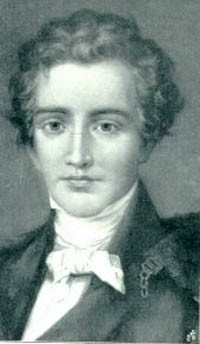Little Muck (German fairy tale) facts for kids
The story of Little Muck is a classic fairy tale by Wilhelm Hauff. It first appeared in 1826 as part of a fairy tale collection. This tale is about a boy named Little Muck, who often felt like an outsider.
Contents
The Caravan: A Story Within a Story
This fairy tale is part of a larger story called "The Caravan." Imagine a group of people traveling together in a caravan. To pass the time and avoid boredom, they share exciting stories. A young businessman named Muley is one of these travelers. He is the one who tells the amazing story of Little Muck.
Little Muck's Adventures
Muley grew up knowing Little Muck in their hometown of Nicea, Turkey. Little Muck was a small boy who lived by himself. He rarely left his house. Muley and his friends often teased Muck because of his unusual appearance and clothes.
One day, they were especially unkind to him. Muley's father found out and decided to teach him a lesson. He began to tell Muley a story about Little Muck. Muley's father explained that Muck's own father, Mukrah, was a respected but poor man. Mukrah was ashamed of Muck's small size. Because of this, he didn't send Muck to school.
When Mukrah passed away, his relatives took everything he owned. This was because he owed them money. Little Muck was left with only a strange suit. It had wide trousers, a big belt, a coat, a turban, and a knife.
Leaving Home
Muck's father was a tall man, so the clothes were much too big. Little Muck cut the legs and sleeves shorter, but the clothes were still very wide. He then left his hometown to find his own way in the world.
Soon, Muck found a place to stay and a new job in another town. He had to care for the cats and dogs of a mysterious woman named Miss Ahavzi.
Magical Discoveries
One day, Muck went into a room Miss Ahavzi had forbidden him to enter. He accidentally broke an expensive bowl. Muck hadn't been paid his wages, and he was often punished for no reason. So, he decided to run away. He took two items from the forbidden room.
It turned out these items had magical powers! One was a pair of slippers. With them, he could not only run faster than anyone but also fly anywhere he wished. The other item was a walking stick. This stick could show him where hidden treasures were buried.
Working for the King
The king was very impressed by Muck's magic slippers. He offered Muck a job as a courier, delivering messages quickly. This made the other servants very jealous of Muck.
One day, Muck used his magic walking stick. He discovered a forgotten treasure in the palace garden. Wanting to make friends, he shared the gold he found with others. However, he was then accused of stealing from the king and sent to prison.
A Clever Escape
Back then, stealing royal property could mean a very serious punishment. But Little Muck saved himself by telling the king about the magic of his slippers and walking stick. The king was curious and tried on the slippers.
However, Muck didn't tell the king how to stop the slippers. The king ran and ran until he was completely exhausted. He was furious! He took Muck's magic items and sent Muck away. After walking for eight hours, Little Muck reached the border of a small country.
Sweet Revenge
By chance, Muck found two fig trees in a forest. He realized he could use the figs to get back at the king. The first type of fig made huge donkey ears and a long nose grow on anyone who ate them. The second type of fig made everything go back to normal.
Little Muck dressed up as a salesman. He secretly put the first type of figs on the king's table. Soon, the king and his royal court had donkey ears and long noses! Then, Muck dressed up as a wise scholar. He offered the king the second type of figs as a cure.
After Muck showed that his cure worked, the king led him to the treasury. He told Muck to choose any reward. Muck immediately grabbed his magic slippers and walking stick. He then revealed who he was. With his magic slippers, Little Muck flew back home. He left the unfair king with his funny new face.
A New Life
From that day on, Little Muck lived a very comfortable life in his hometown. He was still a bit lonely because he didn't trust people easily.
Muley's father finished his story. He said that Muck had learned a lot from his experiences. He deserved respect, not teasing. Muley's father then spared him the rest of the punishment. Muley shared Muck's story with his friends. They were very impressed. From then on, they honored Muck and bowed to him whenever they saw him.
Film Adaptations
The story of Little Muck has been made into several films.
German Films
- 1944: Der kleine Muck (directed by Franz Fiedler; in black-and-white)
- 1953: Die Geschichte vom kleinen Muck (directed by Wolfgang Staudte)
Other Films
- 1921: Little Muck (directed by William Prager)
- 1938: Little Muk (directed by Olga Khodataeva, cartoon, USSR)
- 1971: Little Muck (directed by Otto Anton Eder, telefilm, Austria)
- 1975: Muk-Skorokhod (directed by Nathan Lerner, cartoon, USSR)
- 1983: The Adventures of the Little Muk (directed by Elizaveta Kimyagarova, television film, USSR, Tajikfilm)


